The deliveries of computing services (e.g. networking, software, servers, storage, databases, and analytics) are fulfilled through the internet.
Cloud computing refers to the delivery of computing services like storage, servers, networking, and data analysis over the internet—also known as "the cloud." This completely removes the need for physical hardware and makes technology more accessible, scalable, and cost-effective. It all started back in the 1960s when computer scientist John McCarthy visualized computing as a service, much like electricity. Fast forward to today, this vision has grown into a global system that supports everything from small startups to enterprise giants.
Back in time, if a single user wants to access any particular files or wants to run a program, then the user needed to connect to the server with proper access. Then time goes by and users are networked together and share the files or information on a demand basis by using distributed computing, and it gives rise to the cloud computing idea.
In 1961, at MIT, John MacCharty shared the idea of cloud computing and its potential to become a commodity, just like electricity. Certainly, it was a good idea, but it was too ahead of time, and because of that next few decades, this technology was not developed, but as time with increasing interest urged the need for cloud computing.
First in time, Salesforce.com in 1999 started delivering a cloud computing solution through one simple website. They delivered the application to businesses by using the internet, and the term cloud computing spread worldwide.
Then in 2002 the Amazon.com started providing services like computation, storage, and artificial intelligence under the name of AWS (Amazon Web Services), and now they are the gold standard of cloud computing.
In 2009, Google also launched their cloud computing enterprise applications, which were later known as G Suite.
There are many big players in the industry who are providing Cloud computing solutions like Microsoft Azure, AWS, Google, Layersoft, and many more. We certainly see that today that cloud computing has become mainstream
Understanding the different service models is key to choosing the right cloud solution. Here’s a quick breakdown:
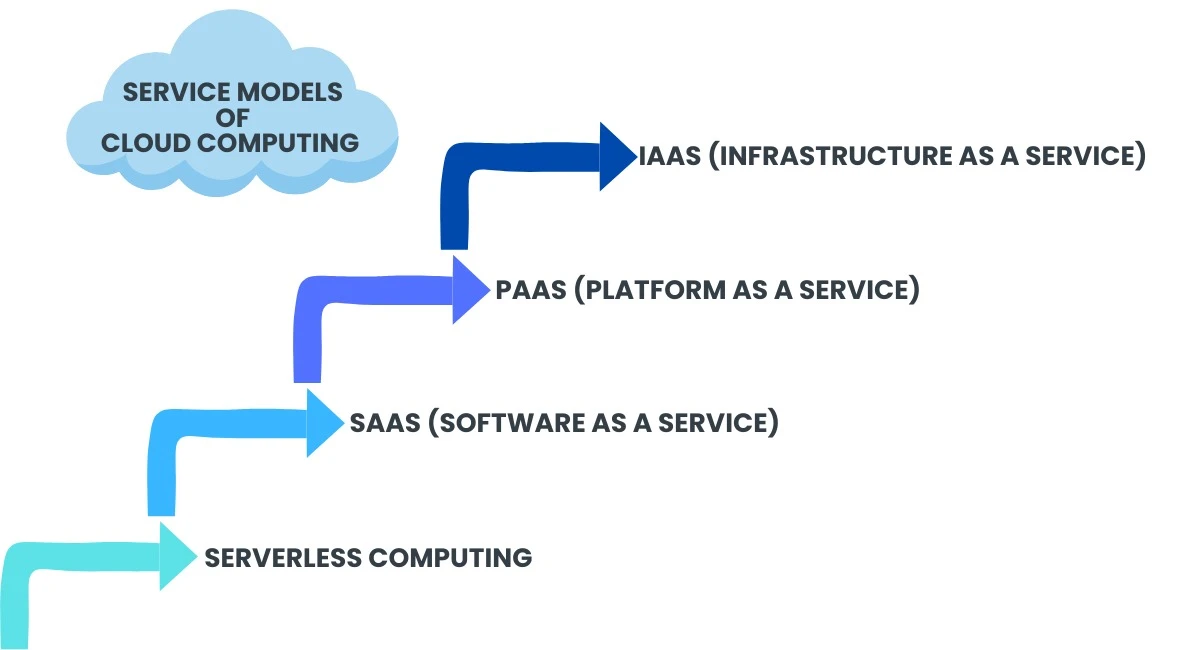
Provides virtualized computing resources like servers, storage, and networking.
Provides a ready-to-use platform for developers to construct, run, and handle applications.
Delivers software applications across the internet on a subscription basis.
A newer system where cloud providers automatically manage server management and expanding.
Cloud deployments aren’t one-size-fits-all. According to the business requirements, organizations can choose from:
Each deployment model offers unique cloud computing benefits, depending on flexibility, budget, and regulatory requirements.
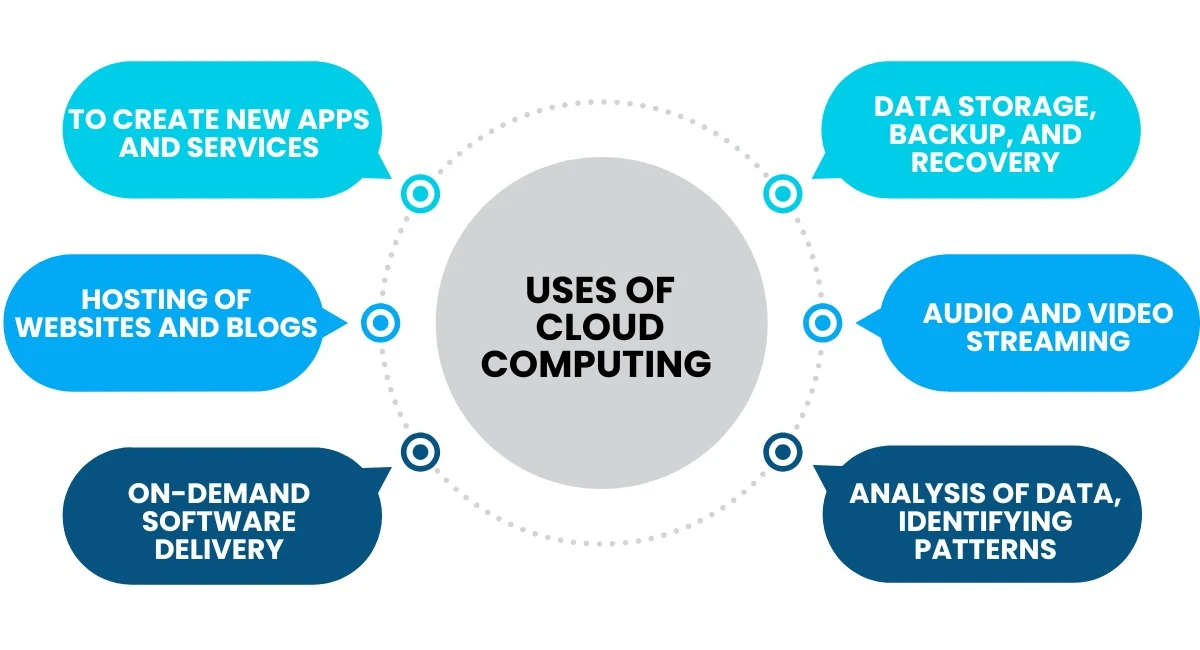
The combination of cloud computing and next-gen technologies is opening opportunities beyond expectations:
This collaboration supports organizations to innovate faster, gain deeper insights, and deliver customized experiences like never before.
When an organization uses cloud computing, it doesn’t need hardware, software and rooms filled with racks of servers to create a datacenter, which also needs a huge amount of electricity to provide power and cooling.
Self-service or we can say on-demand supply of services, these are the principles of Cloud computing, which means that by using your mouse only an organisation to access the services they want.
In the traditional approach, it requires a full setup of data-centres, which requires heavy resources of an organisation with manpower, but in cloud computing IT team is able to spend more time on achieving business goals and delivering value to customers.
If an organization is using cloud computing, then their applicants can access the information from any place or location and on any device, like mobiles and tablets, while working in the field, or at a customer's location.
If there is no need for data centres, then we can definitely say there is less impact on the environment because of organization has less power consumption and a small infrastructure.
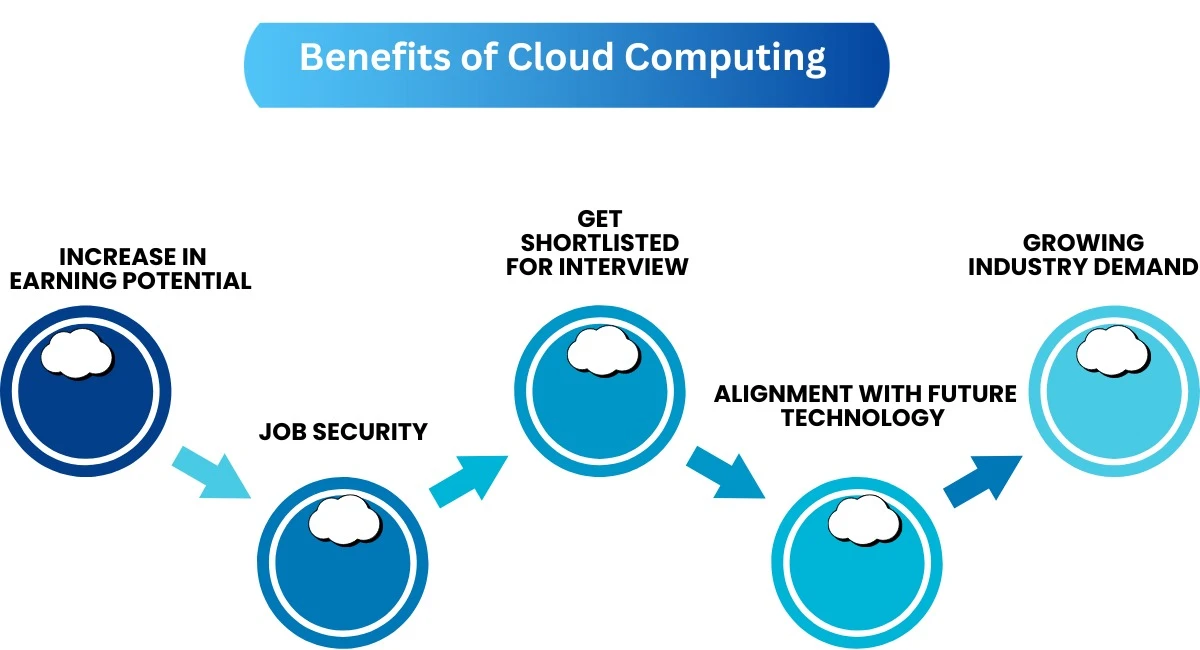
Cloud computing is a growing community because of its unique features all the business are turning towards cloud computing more and more over time. Cloud computing gives you better career growth because these skills are high in demand and the supply of that skilled persons are very limited, So it’s better to learn the skills now than struggling in competitive world in the coming time and cloud computing is demanding skill so the employers are willing to pay more to right person and we all know that to achieve better you have to start better.
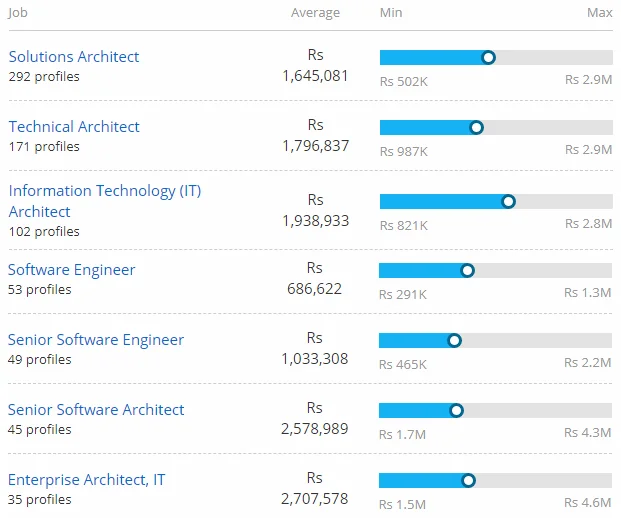
We all know that IT industry is very sensitive, IT industry becomes very volatile if the small changes in business or trends, and here we are talking about cloud computing which is new in market expanding very rapidly and having indefinite lifetime, so having certified in Cloud computing makes your job more secure and gives you stability in work life.
We are living in world where the knowledge is better than Education right? Not completely because certification exam and training is specially designed to give the practical insights which is really important from the interview point of view and become certified will make you eligible for every interview because having certification is many multinational companies criteria so its good to have the certification with proper knowledge.
Over the years cloud becomes the commodity for every types of business because everyone wants to use this economical, fast, and easy technology to grow their business and earn the maximum profit. Cloud technology is going to be the most demanding technology in the future so everybody looking to transform their business to cloud technology.
In this digital era every company wants to go for digital transformation because conventional method was time taking, less economical and exhausting on the other hand digital transformation will enables you to access any information anywhere with the highest level of security in less time and less money and that is the exact meaning of future Right?.
Also the Gartner releases its data about cloud computing services forecast in India, and the data shows that the demand for cloud computing ascending every year.
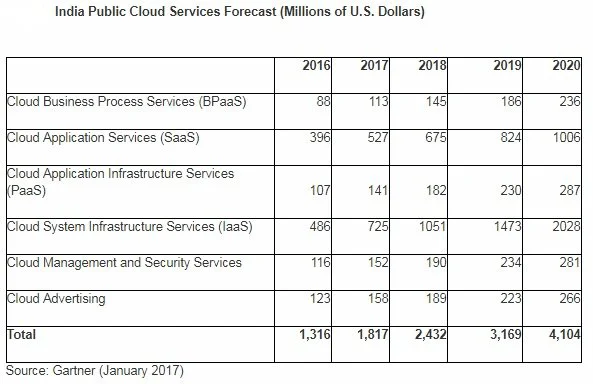
5. Increasing Demand for Cloud Computing Professionals:
As we discuss before everyone wants to use this technology, so there are more and more openings every day and this is just the beginning, so there will be high demand in future for cloud computing professionals. If you Search on job portals just take a look at how many vacancies are available for cloud computing as compared to other technology.
It has been discovered that Amazon web services and Microsoft Azure increased a lot in the recent years and their top clients tells that it has been very difficult to them to hunt for perfect cloud computing professional, hence many international organizations defined the certification criteria for Cloud computing aspirants before applying for the Job. So it must be necessary to get Cloud Computing certified first then attend the interview.
As cloud computing becomes the basic ground of modern IT infrastructure, it’s also unlocking new career paths. Whether you're an IT pro or a beginner, achieving a cloud computing certification boosts your dependability in the job market. Specialized paths like AWS cloud computing certification can fast-track your way into high-demand roles with an impressive cloud computing salary.
If you're ready to dive in, explore our cloud computing certification courses and future-proof your career.
Master Cloud Concepts for Certification Success
Explore the top 5 benefits of cloud computing and strengthen your foundation for AWS and cloud certification exams.
Confused about our certifications?
Let Our Advisor Guide You